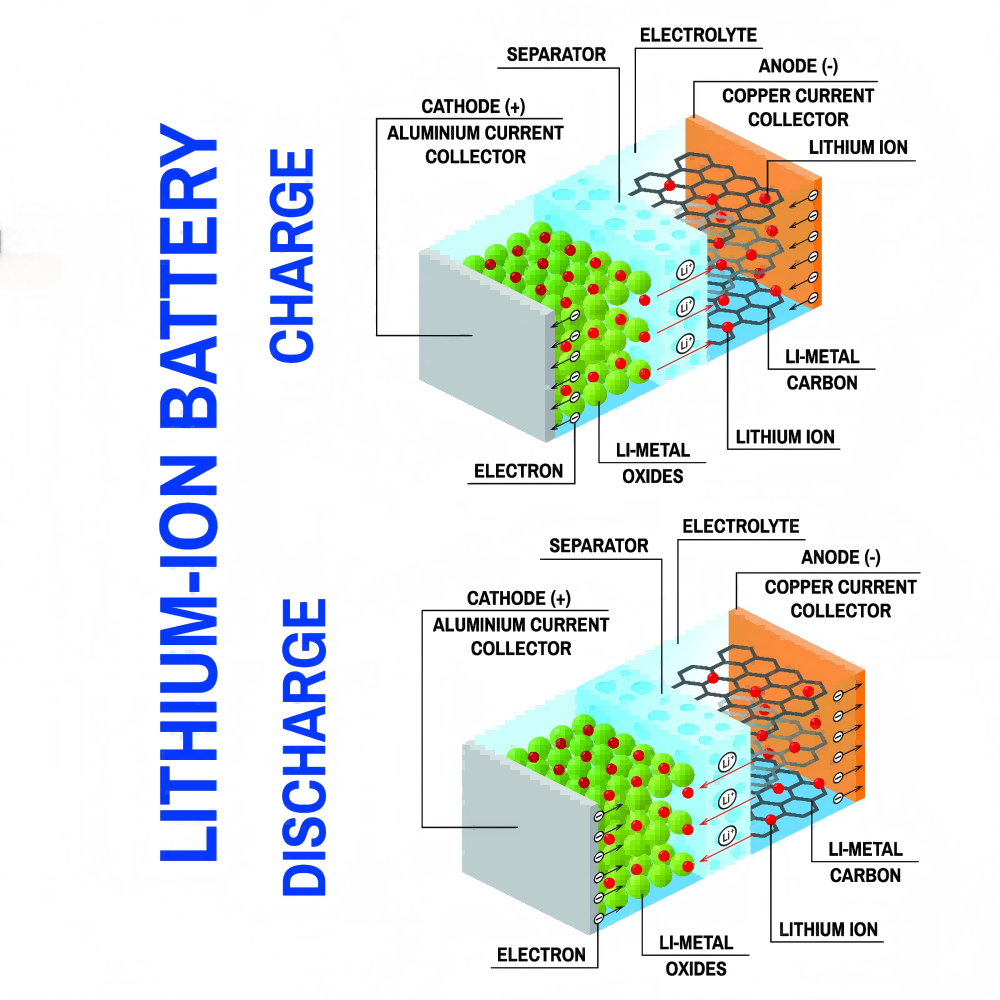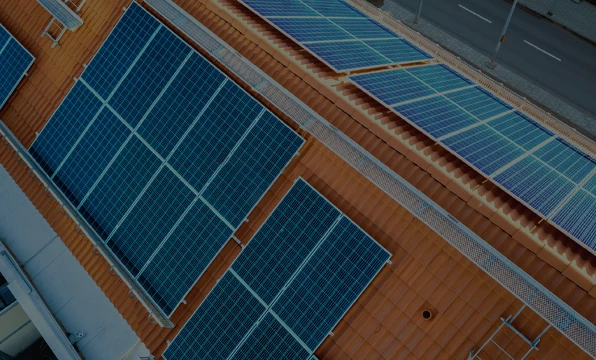In the palm of your hand, within the sleek chassis of your laptop, and increasingly under the hood of your car, resides a technological marvel that quietly powers our modern world: the lithium ion battery (Li-ion). More than just a power source, it's the electrochemical engine driving the portable electronics revolution and the accelerating transition towards sustainable energy.
At its heart, the lithium ion battery operates on a beautifully simple principle: shuttling lithium ions between two electrodes. During charging, an external electrical force pushes lithium ions out of the cathode (typically a lithium metal oxide like NMC, LFP (lifepo4)) and forces them through a conductive electrolyte solution. Simultaneously, electrons travel through the external circuit. The ions journey to the anode, usually made of graphite, where they embed themselves in its structure (intercalation) and await discharge. When you use your device, the process reverses: ions flow back to the cathode, releasing the stored electrons to power your screen, processor, or motor. This reversible dance is the essence of its rechargeability.
At its heart, the lithium ion battery operates on a beautifully simple principle: shuttling lithium ions between two electrodes. During charging, an external electrical force pushes lithium ions out of the cathode (typically a lithium metal oxide like NMC, LFP (lifepo4)) and forces them through a conductive electrolyte solution. Simultaneously, electrons travel through the external circuit. The ions journey to the anode, usually made of graphite, where they embed themselves in its structure (intercalation) and await discharge. When you use your device, the process reverses: ions flow back to the cathode, releasing the stored electrons to power your screen, processor, or motor. This reversible dance is the essence of its rechargeability.
Why Lithium Reigns Supreme
High Energy Density: They pack more energy per kilogram and per liter than most alternatives, enabling slim devices and longer electric vehicle (EV) ranges.
Low Self-Discharge: They lose charge very slowly when idle, unlike older nickel-based batteries.
No Memory Effect: They don't need to be fully discharged before recharging, offering user convenience.
Relatively Long Lifespan: They endure hundreds, even thousands, of charge-discharge cycles before significant degradation.
For battery supplier networks and system integrators, these advantages make Li-ion and lifepo4 cells ideal for everything from mobility to solar energy storage.
Low Self-Discharge: They lose charge very slowly when idle, unlike older nickel-based batteries.
No Memory Effect: They don't need to be fully discharged before recharging, offering user convenience.
Relatively Long Lifespan: They endure hundreds, even thousands, of charge-discharge cycles before significant degradation.
For battery supplier networks and system integrators, these advantages make Li-ion and lifepo4 cells ideal for everything from mobility to solar energy storage.
The Ubiquitous Impact
It's hard to overstate the influence of lithium ion battery technology:
1.Consumer Electronics Revolution: Without Li-ion, smartphones, tablets, laptops, wireless earbuds, and smartwatches as we know them – thin, light, and long-lasting – simply wouldn't exist.
2.Electric Vehicles (EVs): Lithium-ion batteries are the critical enabler for practical EVs, providing the necessary range, power, and rechargeability. Companies like Tesla, BYD, and all major automakers rely on them.
3.Renewable Energy Storage: As solar energy and wind power grow, large-scale Li-ion battery systems (BESS – battery energy storage system suppliers) store excess energy for use when the sun isn't shining or the wind isn't blowing, stabilizing the grid.
4.Power Tools & Medical Devices: From cordless drills to life-saving portable medical equipment, Li-ion offers reliable, cord-free power – a core product category for every major battery supplier.
1.Consumer Electronics Revolution: Without Li-ion, smartphones, tablets, laptops, wireless earbuds, and smartwatches as we know them – thin, light, and long-lasting – simply wouldn't exist.
2.Electric Vehicles (EVs): Lithium-ion batteries are the critical enabler for practical EVs, providing the necessary range, power, and rechargeability. Companies like Tesla, BYD, and all major automakers rely on them.
3.Renewable Energy Storage: As solar energy and wind power grow, large-scale Li-ion battery systems (BESS – battery energy storage system suppliers) store excess energy for use when the sun isn't shining or the wind isn't blowing, stabilizing the grid.
4.Power Tools & Medical Devices: From cordless drills to life-saving portable medical equipment, Li-ion offers reliable, cord-free power – a core product category for every major battery supplier.
Challenges and the Road Ahead
Despite its dominance, the lithium-ion battery isn't perfect:
Safety Concerns: Thermal runaway – an uncontrolled overheating reaction – though rare, can lead to fires. Robust battery management systems (BMS) are crucial safeguards.
Resource Constraints & Ethics: Mining lithium, cobalt, and nickel raises environmental and ethical questions.
Degradation: Capacity and performance diminish over time and with use.
Cost: While dropping rapidly, cost remains a barrier for large-scale applications like grid storage and cheaper EVs, although battery energy storage system suppliers are actively working to reduce it.
Safety Concerns: Thermal runaway – an uncontrolled overheating reaction – though rare, can lead to fires. Robust battery management systems (BMS) are crucial safeguards.
Resource Constraints & Ethics: Mining lithium, cobalt, and nickel raises environmental and ethical questions.
Degradation: Capacity and performance diminish over time and with use.
Cost: While dropping rapidly, cost remains a barrier for large-scale applications like grid storage and cheaper EVs, although battery energy storage system suppliers are actively working to reduce it.
Innovation Beckons
Research is feverishly tackling these challenges:
Solid-State Batteries: Replacing the flammable liquid electrolyte with a solid material promises greater safety, potentially higher energy density, and faster charging.
New Chemistries: Exploring alternatives like Lithium-Sulfur (Li-S) or Lithium-Air (Li-Air) for even higher energy density.
Silicon Anodes: Using silicon instead of graphite could significantly boost capacity.
Advanced Recycling: Developing efficient, cost-effective methods to recover valuable materials from spent batteries is paramount for sustainability — a growing priority for every battery supplier working in grid-scale and lifepo4 solutions.
Solid-State Batteries: Replacing the flammable liquid electrolyte with a solid material promises greater safety, potentially higher energy density, and faster charging.
New Chemistries: Exploring alternatives like Lithium-Sulfur (Li-S) or Lithium-Air (Li-Air) for even higher energy density.
Silicon Anodes: Using silicon instead of graphite could significantly boost capacity.
Advanced Recycling: Developing efficient, cost-effective methods to recover valuable materials from spent batteries is paramount for sustainability — a growing priority for every battery supplier working in grid-scale and lifepo4 solutions.
Conclusion
The lithium ion battery is far more than a component; it's a foundational technology of the 21st century. It liberated our devices from power cords, is electrifying transportation, and is key to unlocking a solar energy-driven future. While challenges around safety, resources, and sustainability demand continuous innovation, the relentless pursuit of better battery technology ensures that the silent powerhouse within our devices will continue to evolve, shaping a more mobile and electrified world for decades to come. Its story is still being written — charged with potential.
Inquiry more product details from thelithium ion battery supplier:
WhatsApp/Wechat/Mobile: +86 13332949210
Email: info@xihobattery.com
Website: www.xihopower.com
WhatsApp/Wechat/Mobile: +86 13332949210
Email: info@xihobattery.com
Website: www.xihopower.com
 +86 13332949210
+86 13332949210 info@xihobattery.com
info@xihobattery.com







 Xiho
Xiho Jul 31 2025
Jul 31 2025











